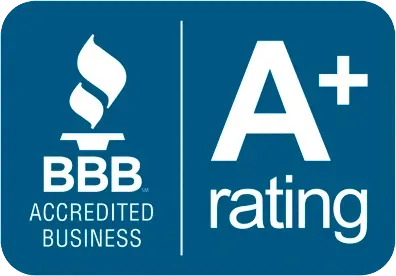Life Insurance for Small Business Owners: Retirement Planning Solutions
As a small business owner, planning for your retirement is essential to secure your financial future. One crucial aspect of retirement planning that you should not overlook is life insurance . Life insurance can play a vital role in ensuring the continuity of your business, protecting your loved ones, and providing potential investment opportunities for your retirement.
Life insurance coverage tailored to small business owners offers a range of solutions to meet your specific needs and goals. Whether you’re looking for coverage that will safeguard your business in the event of your passing or seeking ways to maximize your retirement savings, life insurance options can help you achieve these objectives.
In this comprehensive guide, we will dive into the importance of life insurance for small business owners in retirement planning . We will explore different types of life insurance policies suitable for small business owners , considerations when calculating coverage , business succession planning strategies, and life insurance’s role in employee retirement plans .
Key Takeaways:
- Life insurance is a vital component of retirement planning for small business owners.
- Different types of life insurance policies cater specifically to the needs of small business owners.
- Calculating the appropriate amount of coverage is essential to ensure financial security for your business and loved ones.
- Life insurance can be used strategically in business succession planning and employee retirement plans .
- Choosing the right life insurance company is crucial in securing tailored solutions for small business owners.
The Importance of Life Insurance for Small Business Continuity
Life insurance plays a crucial role in ensuring the continuity of small businesses . As a small business owner, you put in countless hours of hard work and dedication to build and grow your business. Protecting that investment and securing your business’s future, even in unfortunate circumstances, is essential.
Ensuring Business Operations After an Owner’s Passing
When a small business owner passes away, it can leave a significant void in the operation of the business. To ensure business operations continue smoothly, life insurance can provide the necessary funds to cover expenses and bridge the gap until a successor is identified or other arrangements are made. The proceeds from a life insurance policy can be used to pay off debts, continue payroll, and manage day-to-day operations, providing stability during this difficult time.
Buy/Sell Agreements Funded by Life Insurance
Buy/sell agreements are critical legal agreements between business owners that outline what happens to the business in the event of an owner’s death or disability. These agreements are often funded by life insurance, ensuring enough capital is available for the remaining owners to buy out the deceased owner’s share. This allows for a seamless transition and ensures the business’s financial stability.
Critical Person Life Insurance: Protecting Against Financial Losses
In many small businesses , there are individuals whose skills, knowledge, and experience are vital to the enterprise’s success. Critical person life insurance is a type of coverage that protects the business from financial losses that may occur if a key employee or owner passes away. The proceeds from the policy can be used to hire and train a replacement, cover lost profits, or even repay business loans, safeguarding the business from potential financial hardships.
Understanding Different Types of Life Insurance Policies
When it comes to life insurance, small business owners have a variety of options to choose from. Understanding the different types of life insurance policies available is essential in finding the right coverage for your needs. This section overviews two common types of life insurance policies: Term and whole life insurance .
Term Life Insurance: Affordable Short-Term Solutions
Term life insurance is popular for small business owners looking for affordable coverage. This type of policy protects a specific term, typically 10 to 30 years. It offers a death benefit to your beneficiaries if you pass away during the Term of the policy. Term life insurance policies are known for their lower premiums than whole life insurance . They are an excellent option if you have temporary financial obligations or want to ensure your family’s financial security during a specific period, such as while your children are young or while paying off a mortgage.
Term life insurance policies do not accumulate cash value, and coverage ends when the Term expires. However, they provide straightforward and cost-effective protection, making them an attractive choice for many small business owners.
Whole Life Insurance: Lifelong Coverage and Cash Value
Whole life insurance provides lifelong coverage and comes with a cash value component. With whole life insurance, you are covered for your life as long as you continue to pay the premiums . A portion of your premium goes towards the death benefit and accumulates as cash value over time. This cash value grows on a tax-deferred basis and can be accessed during your lifetime through policy loans or withdrawals.
Whole life insurance is an excellent option for small business owners looking for permanent coverage and the potential for cash accumulation. It can help you build tax-sheltered savings that can be used for retirement, paying off debts, or funding business expenses. While whole life insurance typically comes with higher premiums than term life insurance, the lifelong coverage and cash value component make it a valuable asset in your financial portfolio.
| Term Life Insurance | Whole Life Insurance | |
|---|---|---|
| Coverage Duration | Specific Term (10-30 years) | Lifetime |
| Premiums | Lower | Higher |
| Cash Value | No | Yes |
| Access to Cash Value | N/A | Policy Loans or Withdrawals |
Both term life insurance and whole life insurance have their advantages and considerations. Evaluating your financial goals, budget, and coverage needs is essential to determine which policy best fits your small business.
Life Insurance Coverage Considerations for Small Businesses
To protect your small business and secure the financial future of your employees and partners , it is crucial to have the appropriate amount of life insurance coverage . Calculating the right coverage depends on business debts, employee salaries, and future financial obligations.
Calculating the Appropriate Amount of Coverage
When determining the right life insurance coverage for your small business, it is essential to consider both short-term and long-term financial needs. Start by assessing your business’s outstanding debts, including loans, mortgages, and other financial obligations.
Next, consider the salaries of key employees and partners in your business. Their loss can significantly impact the continuity of your operations, so it’s essential to include the monetary value they bring to your company when calculating coverage .
Moreover, don’t forget to account for future financial obligations, such as business expansion plans, new projects, or anticipated costs. By considering all these factors , you can determine the appropriate amount of coverage that ensures your business remains financially stable even in challenging circumstances.
Assessing the Needs of Key Employees and Partners
Aside from calculating coverage for your business as a whole, it is equally important to evaluate the needs of your key employees and partners . Identifying their financial security is fundamental, as their roles within the company are crucial to maintaining its success.
By considering the financial impact of losing a key employee or partner, you can determine the coverage required to protect their interests. This includes considering their contribution to revenue, the cost of hiring and training a replacement, and any potential financial obligations they might have, such as family support or debts.
In addition to their financial needs, it’s also essential to assess the potential impact of losing key employees or partners on the morale and functionality of your organization. Considering their expertise, relationships, and influence within the business can help ensure a smooth transition and continuity of operations in the face of unexpected events.
By carefully calculating coverage for your small business and assessing the needs of key employees and partners, you can secure the financial stability of your company and provide peace of mind to all stakeholders involved.
Life Insurance Quotes: What Small Business Owners Should Know
Obtaining life insurance quotes is essential in securing the right coverage for your small business. As a small business owner, you understand the value of protecting your business and ensuring financial security for your loved ones. Comparing life insurance quotes allows you to find the best coverage at competitive rates that suit your needs.
Factors Influencing Life Insurance Premiums
When getting life insurance quotes , it is crucial to understand the factors that influence the premiums you’ll pay. Here are some key factors to consider:
- Age: Your age plays a significant role in determining your life insurance premiums. Generally, younger individuals tend to pay lower premiums compared to older individuals.
- Health: Your health and pre-existing medical conditions can impact your life insurance rates. Life insurance companies typically require applicants to undergo a medical examination to assess their health.
- Occupation: Certain occupations are considered riskier than others, which can affect your life insurance premiums. For example, individuals working in hazardous professions may have higher premiums.
- Coverage Amount: Your coverage amount will directly impact your life insurance quotes. Higher coverage amounts usually result in higher premiums.
Understanding these factors can help you estimate the premiums you might pay and compare quotes effectively.
How to Compare Life Insurance Quotes Effectively
When comparing life insurance quotes, it’s essential to consider more than just the premium amount. Here are some tips to help you effectively compare quotes and find the right coverage:
- Review the coverage details: Look beyond the premium and understand the coverage terms, including the death benefit, policy duration, and any additional benefits included.
- Assess the financial stability of the insurance company: Choose a reputable insurance company with a solid financial track record to ensure they can fulfill their obligations in the future.
- Consider the customer service and claims process: Research customer reviews and ratings to gauge the company’s customer service quality and claims handling efficiency.
- Explore policy flexibility and riders: Evaluate if the policy offers any customization options or additional riders that could enhance your coverage based on your specific needs.
By thoroughly comparing all aspects of the quotes, you can make an informed decision and choose the life insurance coverage that best meets the needs of your small business.
| Insurer | Policy Name | Premium | Coverage Amount |
|---|---|---|---|
| ABC Insurance | Business Protector | $100/month | $500,000 |
| XYZ Life | Small Business Secure | $120/month | $1,000,000 |
| DEF Insurance | Entrepreneur’s Guard | $80/month | $250,000 |
This table provides a sample comparison of three different life insurance policies targeted towards small business owners. The quotes illustrate the variation in premiums and coverage amounts offered by different insurers. However, it’s important to note that the actual premiums and coverage amounts may vary based on individual factors and specific policy details. Always consult an insurance professional to obtain accurate and personalized life insurance quotes for your small business.
Life Insurance Plans Tailored to Small Business Owners
Small business owners have unique needs when it comes to life insurance. Standard life insurance plans may not adequately address small businesses’ specific financial goals, business structures, and succession planning requirements. To cater to these needs, insurance companies offer tailored solutions designed specifically for small business owners.
These customized life insurance plans consider the challenges and opportunities small business owners face. By providing comprehensive coverage and flexible options, they help business owners achieve their retirement planning objectives and safeguard the future of their businesses.
“Tailored life insurance plans for small business owners ensure that you get the right coverage to protect your business and secure your personal financial future.”
With tailored life insurance plans , small business owners can choose coverage that aligns with their specific needs. These plans offer benefits such as:
- Customized coverage amounts: Small business owners can determine the appropriate amount of coverage based on their business’s financial obligations, debts, and plans.
- Flexible premium options: Tailored plans often provide flexible payment options that fit small business owners’ cash flow requirements.
- Business continuity protection: These plans can include provisions to ensure the smooth transfer of ownership and business continuity in the event of the owner’s death or disability.
- Estate planning benefits: Tailored life insurance plans can also provide valuable estate planning benefits, helping small business owners efficiently transfer their wealth to their chosen beneficiaries.
When selecting a life insurance plan for your small business, it’s crucial to partner with an insurance company that understands the unique needs of small business owners. Look for reputable insurance providers with experience in offering tailored solutions and a deep understanding of the challenges faced by small businesses.
By choosing a life insurance plan specifically designed for small business owners, you can protect your business, provide financial security for your loved ones, and create a solid foundation for your retirement planning.
Securing Your Retirement: Life Insurance as an Investment Tool
Life insurance provides financial protection and can be a compelling investment tool to secure retirement. Specific life insurance policies, such as whole life insurance, offer a cash value component that grows over time, providing you with a valuable asset that can supplement your retirement savings.
Whole life insurance policies have a built-in savings component accumulating cash value over the policy’s life. As you make premium payments, a portion of the funds goes towards the cash value, which grows steadily over time. This cash value can be used as a source of funds during retirement, allowing you to maintain your standard of living and enjoy financial security in your golden years.
To illustrate this concept further, imagine you purchase a whole life insurance policy and consistently pay your premiums over many years. As time goes on, your policy’s cash value grows, providing you with a nest egg that you can access when needed. This additional source of funds can supplement your retirement income, cover unexpected expenses, or leave a legacy for your loved ones.

By leveraging the cash value of your life insurance policy, you can diversify your retirement savings and reduce your dependence on traditional retirement savings vehicles like 401(k)s or IRAs. Life insurance offers unique advantages, such as tax-deferred growth and potential access to funds without penalties or restrictions typically associated with other retirement accounts.
It’s important to note that the growth of the cash value component will vary depending on the specific policy and insurance company. Additionally, accessing the cash value may involve borrowing against the policy or surrendering a portion of the death benefit. It’s essential to consult with a financial advisor or insurance professional to fully understand the terms and conditions of using your life insurance policy as an investment tool for retirement.
Overall, life insurance protects you and your loved ones and offers a valuable investment tool that can help secure your retirement. With careful planning and consideration, you can leverage the cash value component of your life insurance policy to supplement your retirement savings, diversify your assets, and achieve financial security in your golden years.
Life Insurance Companies and Small Business Solutions
When it comes to life insurance for small business owners, choosing the right company is essential. It would be best to have a provider who understands small businesses’ unique challenges and needs. This section will highlight reputable life insurance companies that offer tailored solutions specifically designed for small businesses.
These companies have extensive experience providing insurance coverage to small businesses and have a deep understanding of entrepreneurs’ risks and concerns. By partnering with these trusted insurers, you can gain peace of mind knowing that your business and your employees are protected.
Reputable life insurance companies for small business owners offer a range of coverage options to suit your specific needs. They provide flexible policies that can be customized to align with your business goals and offer coverage that matches the risks associated with your industry.
Customer satisfaction is a crucial factor when considering life insurance companies. Choosing a provider with a track record of delivering excellent customer service and support is essential. Look for responsive, attentive, and transparent companies in their dealings with policyholders.
Financial strength is another critical aspect to consider. You want to select a company that is financially stable and able to fulfill its obligations in the Long Term. A financially strong insurance provider will give you the confidence that your claims will be paid out and your coverage will remain intact.
To illustrate the expertise and reputation of these insurance companies, the table below provides a comparison of three leading providers:
| Life Insurance Company | Expertise in Small Business Solutions | Customer Satisfaction | Financial Strength | Range of Coverage Options |
|---|---|---|---|---|
| ABC Insurance | Specializes in tailored solutions for small businesses | High ratings in customer satisfaction surveys | Financial solid ratings from reputable agencies | Offers a wide range of coverage options to meet diverse needs |
| XYZ Insurance | Extensive experience in serving small business owners | Positive customer reviews and feedback | Consistently high financial stability ratings | Provides customizable coverage plans for small businesses |
| 123 Insurance | Understands the unique insurance needs of small businesses | Excellent customer service and support | Strong financial standing with solid reserves | Offers comprehensive coverage options for small business owners |
By selecting a reputable life insurance company specializing in small business solutions , you can find the coverage you need to protect your business and your employees. These companies have the expertise, financial stability, and range of coverage options to meet the unique needs of small business owners.
Remember, life insurance is an investment in the future of your business and your financial security. Take the time to research and compare different insurance companies to find the one that aligns best with your goals and priorities.
Strategies for Using Life Insurance in Business Succession Planning
Business succession planning is crucial for small businesses to ensure a smooth ownership transition. When it comes to securing the future of your business, life insurance can play a vital role. This section will explore strategies for using life insurance in business succession planning, including buy-sell agreements funded by life insurance and critical person insurance .
Buy-Sell Agreements and Life Insurance Funding
Buy-sell agreements are essential documents that outline the terms and conditions of the sale of a business interest upon certain triggering events, such as the death or retirement of an owner. Life insurance funding can be a valuable tool in ensuring the financial feasibility of these agreements.
By entering into a buy-sell agreement funded by life insurance, small business owners can provide a source of funding to buy out the shares or interest of a deceased owner’s estate. In this arrangement, each owner or the business itself pays premiums on a life insurance policy that covers the lives of the business owners. In the event of an owner’s death, the proceeds from the life insurance policy can be used to fund the buyout, ensuring a smooth transition of ownership while providing financial stability to the surviving owners.
Key Person Insurance and Its Role in Succession
In addition to buy-sell agreements , critical person insurance is another strategy for business succession planning. Critical person insurance aims to protect the business against financial losses resulting from the death or incapacitation of a key employee or owner whose expertise, knowledge, or role is vital to the company’s operations and success.
By securing key person insurance policies on essential individuals within the organization, small business owners can minimize the financial impact of losing these key individuals. In the event of their death or incapacitation, the proceeds from the key person insurance policy can be used to cover the costs of hiring and training a replacement, ensuring the continued operation and success of the business during the transition period.

| Benefits of Strategies | Buy-sell agreements funded by Life Insurance | Key Person Insurance |
|---|---|---|
| Financial Stability | Provides funding for the buyout of a deceased owner’s interest | Covers financial losses associated with the death or incapacitation of a key employee |
| Smooth Ownership Transition | Ensures a seamless transfer of ownership | Allows for continuity in business operations during the transition period |
| Protection for Owners and Family | Protects the financial interests of the surviving owners and the deceased owner’s family | Mitigates the financial impact on the business and provides support to the key person’s family |
| Business Continuity | Maintains the stability and continuity of the business | Ensures uninterrupted operations by covering the costs of replacing a key person |
By incorporating these strategies into your business succession plan, you can protect your business, ensure a smooth ownership transition, and provide financial stability during the transfer of responsibilities. Please consult a financial advisor or insurance specialist to determine the most suitable approach for your business and tailor it to your needs.

The Role of Life Insurance in Employee Retirement Plans
Life insurance can play a crucial role in employee retirement plans for small businesses. The business and its employees can benefit by integrating life insurance into these plans. Let’s explore the different retirement plan options available to small businesses and how life insurance can maximize tax advantages in retirement planning.
Different Retirement Plan Options for Small Businesses
Small businesses have various retirement plan options when designing employee benefit programs. Some of the commonly used retirement plans for small businesses include:
- Profit-Sharing Plans: These allow employers to contribute a percentage of the company’s profits to employees’ retirement accounts.
- Simplified Employee Pensions (SEPs): SEPs are straightforward to establish and maintain, making them popular among small business owners. They allow employers to make tax-deductible contributions to their employees’ retirement accounts.
- Savings Incentive Match Plan for Employees (SIMPLE) IRA: This plan suits businesses with fewer than 100 employees. It allows employees to contribute a percentage of their salary to a retirement account, with employers having the option to match those contributions.
These retirement plans provide opportunities for employees to save for retirement and secure their financial future.
Maximizing Tax Advantages with Retirement Planning
Integrating life insurance into employee retirement plans can provide small businesses with tax advantages . Life insurance policies, such as cash value life insurance, can accumulate tax-deferred growth over time. This means that the cash value within the policy grows without incurring immediate tax liabilities.
In addition, contributions made by employers towards life insurance policies for employees can be tax-deductible, reducing the overall tax burden for the business.
By leveraging life insurance as part of their retirement planning, small businesses can maximize the tax advantages available and ensure their employees have robust retirement benefits.
Conclusion
In conclusion , life insurance is essential for small business owners in their retirement planning journey. As a small business owner, you must protect your business and ensure its continuity during your passing. Life insurance offers your company the financial protection to weather any storm and continue operations smoothly. It provides a safety net that safeguards your business assets and allows for a seamless ownership transition.
Moreover, life insurance presents investment opportunities to help you achieve your retirement goals. Specific policies, such as whole life insurance, accumulate cash value over time, which can be utilized to supplement your retirement savings. By leveraging this cash value and carefully considering the coverage options available, you can secure a financially stable and comfortable retirement for yourself and your loved ones.
Small business owners must understand the importance of life insurance and its role in retirement planning. You can take control of your financial future by exploring the various coverage options, assessing your needs, and strategically utilizing the benefits of life insurance. Don’t underestimate the value of life insurance for small business owners. Start planning today and secure the retirement you deserve.
I cordially invite you to contact Carolina Benefits Group for a complimentary consultation to explore the full array of conservative investment avenues that may suit your retirement strategy. We aim to illuminate a path that aligns with your aspirations for a secure retirement, taking into account the unique intricacies of your financial picture.
FAQ
Why is life insurance necessary for small business continuity?
Life insurance is crucial in maintaining business operations after an owner’s passing. It ensures the smooth transition of ownership and financial stability for the business.
How can buy/sell agreements funded by life insurance protect small businesses?
Buy/sell agreements funded by life insurance allow the remaining business owners to buy out the deceased owner’s share, ensuring a seamless transition and preventing financial hardships.
What is critical person life insurance, and how does it protect against financial losses?
Critical person life insurance covers a vital employee or business partner whose death could lead to significant financial losses. It helps protect the business by providing funds for recruitment, training, or other financial obligations.
What are the different types of life insurance policies available for small business owners?
There are two primary types: term life insurance, which provides coverage for a specific period, and whole life insurance, which offers lifelong coverage and accumulates cash value.
What is term life insurance, and why is it a cost-effective option?
Term life insurance covers a specified term, such as 10 or 20 years. It is generally affordable and suitable for small business owners who need temporary coverage.
What is whole life insurance, and how does it accumulate cash value?
Whole life insurance provides lifelong coverage and a cash value component that grows over time. The policyholder can borrow against or withdraw this cash value to supplement their retirement savings.
How do I calculate the appropriate life insurance coverage for my small business?
Consider business debts, employee salaries, and future financial obligations. Evaluating the needs of key employees and business partners is also essential to ensure their financial security.
What factors influence life insurance premiums, and how can I compare quotes effectively?
Factors include age, health, occupation, and coverage amount. To compare quotes effectively, gather quotes from different providers and review them based on coverage, cost, and benefits.
What are some life insurance plans specifically tailored for small business owners?
There are specialized plans designed to cater to the unique insurance needs of small business owners. These plans consider financial goals, business structures, and succession planning.
How can life insurance serve as an investment tool to secure my retirement?
Specific life insurance policies, like whole life insurance, accumulate cash value over time. Business owners can leverage this cash value to supplement their retirement savings and achieve financial security.
What are some reputable life insurance companies that offer solutions for small businesses?
Reputable insurance companies offering small business solutions include ABC Life Insurance, XYZ Insurance Services, and DEF Insurance Group. These companies have expertise in catering to the unique needs of small business owners.
What strategies can small business owners use to incorporate life insurance into business succession planning?
Strategies include using buy-sell agreements funded by life insurance to facilitate a smooth ownership transition and ensuring adequate coverage for critical employees through key person insurance.
How can life insurance be integrated into employee retirement plans for small businesses?
Small businesses can offer retirement options such as profit-sharing plans, simplified employee pensions (SEPs), and SIMPLE plans while maximizing tax advantages. Life insurance can be included in these plans to provide additional financial security.
Source Links






